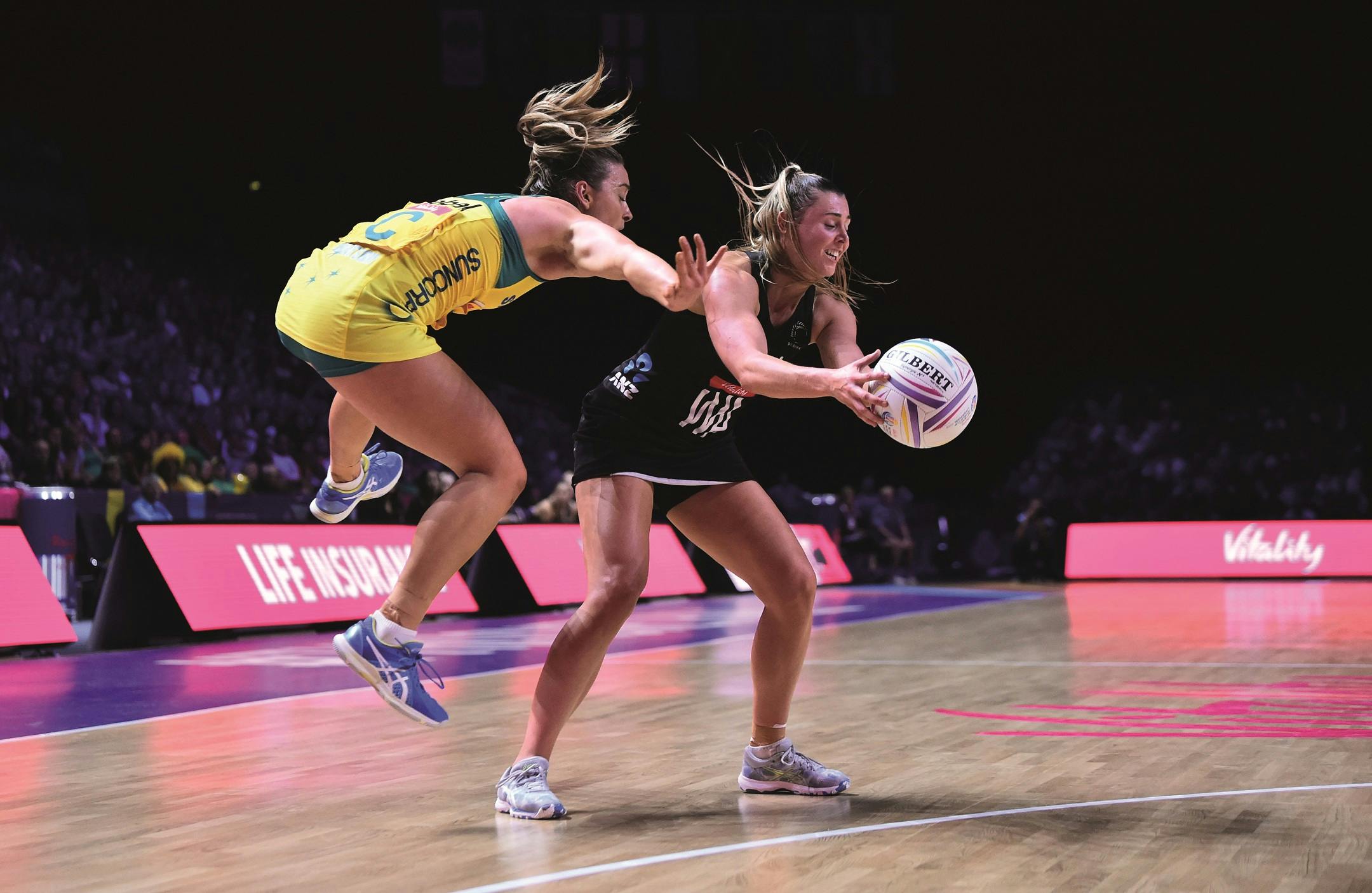Women’s sport has enjoyed a landmark year, with unprecedented media coverage shining a spotlight on major international events such as the Fifa Women’s World Cup, INF Netball World Cup and ICC Women’s Cricket World Cup.
Fifa’s showpiece event of the year smashed records to illustrate the growing appetite for women’s sports.
The most watched Women’s World Cup ever reached 993.5 million unique individuals for at least one minute on in-home linear television – a 30-per-cent rise on the previous edition. According to Nielsen, 481.5 million people also accessed coverage on digital platforms. An average audience of 17.27 million viewers tuned in for live matches, more than double the average of 8.39 million recorded four years earlier.
The result of this increasing media interest in women’s sports is having a clear impact on participation, with greater visibility on mainstream platforms and channels inspiring females of all ages to adopt healthier lifestyles.

Momentum
The popularity of women’s sports, despite having surged in recent times, is not a new phenomenon.
The Women’s Tennis Association, for example, has been among the organisations leading the charge, with the WTA’s leadership pushing for equal recognition and pay in the sport alongside male tennis stars ever since it was founded in 1973. As a result, tennis now enjoys arguably a more equitable split of fans and media interest across its men’s and women’s competitions than any other sport.
However, the cut-through appeal of campaigns such as Sport England’s ‘This Girl Can’ have given the movement real momentum, with more women and girls than ever before incorporating exercise into their lives.
Generational drive
Generations Y and Z are contributing towards the drive, with research showing that they do not define life by gender in the same way as their predecessors, especially the baby boomers. In addition, since the 2008 Summer Paralympic Games in Beijing, there have been significant efforts by sports to become more socially inclusive, opening up further participation opportunities.
The links between exercise, inclusivity and social good are also being strengthened, with the traditional parameters of sport and exercise – within the confines of fitness centres and sports clubs – being broken down.
With GoodGym, for example, the focus is on collaboration rather than competition, with the organisation bringing together runners to combine regular exercise with helping communities and carrying out good deeds. About 70 per cent of the participants are women.
Meanwhile user-generated content is being created and distributed on social media, driving participation in initiatives like Park Run, which takes place in more than 1,400 locations across 22 countries.
International appeal
Such international appeal is being reflected in the profile of those participating at elite levels of sport, as well as at the grassroots, demonstrating major shifts even in countries where there have been traditional obstacles to female involvement in sport.
Attitudes are changing. For example, the emergence of Reema Juffali as Saudi Arabia’s first female professional racing driver, just a year after a ban on women driving in the kingdom was lifted, has attracted significant interest in the Middle East and beyond. Meanwhile the Arabian Gazelles has been established as the UAE’s first female-only supercar-owner club.
With interest in women’s sports growing across Asia, the world’s most populous country is also witnessing encouraging trends in terms of participation, awareness and coverage.
The collective emergence of Chinese sportswomen – like Li Na in tennis, snowboarder Liu Jiayu, Ding Ning in table tennis and golfer Shanshan Feng – has been bookended by the 2008 Summer Olympics and the 2022 Winter Games, which, once more in Beijing, will be a signpost for future generations of sportswomen in the country.
Changing narrative
The narrative is therefore changing considerably, underpinned by greater inclusivity and positivity, with women of all ages becoming more active and social through exercise and sport.
With that in mind, the onus is on brands, sponsors, media companies and event organisers in sport to react accordingly, with the changing behaviours of younger generations helping to encourage healthier lifestyles for older people as well.
The growing attendances at fan zones at various events since they were first used on a broad scale at the 2006 FIFA World Cup in Germany have illustrated how there is a desire to share experiences in sport.
A clear narrative in an experiential sense is becoming increasingly important; creating moments that matter, evoking emotional responses, creating meaningful memories that can be shared on multiple channels, and above all, deepening relationships.

Strengthening relationships
A challenge that stakeholders across the sports industry are grappling with is how to strengthen those relationships with Generations Y and Z, and put in place foundations to engage effectively with future sports fans and participants.
Will the live action in person remain the Holy Grail for spectators or, on the back of technological advancement and the growth of OTT digital-streaming platforms, augmented and virtual realities, will an immersive ‘phygital’ experience become the priority for fans?
Will there be fewer new stadia built, with such facilities able to accommodate a mixed-reality experience for audiences at the venue – as is the case with esports events like the Overwatch League?
Moreover, what role will an issue such as climate change have in the broader conversation about attending sports events, with consumers increasingly aware of carbon footprints generated by travelling distances to watch live action.
In the context of evolving trends regarding sports inclusivity, participation and consumption, and with a greater focus on experiential offerings, it is clear that understanding the changing nature of sport is critical to success in the industry.
For 30 years, M-is has been delivering extraordinary experiences around the world – working with brands, organisations and individuals to transform conversations and drive moments that matter.
With a track record of working with partners on bidding and hosting major events, M-is understands the changing nature of sport – and the experiential opportunities that lie at the heart of it.